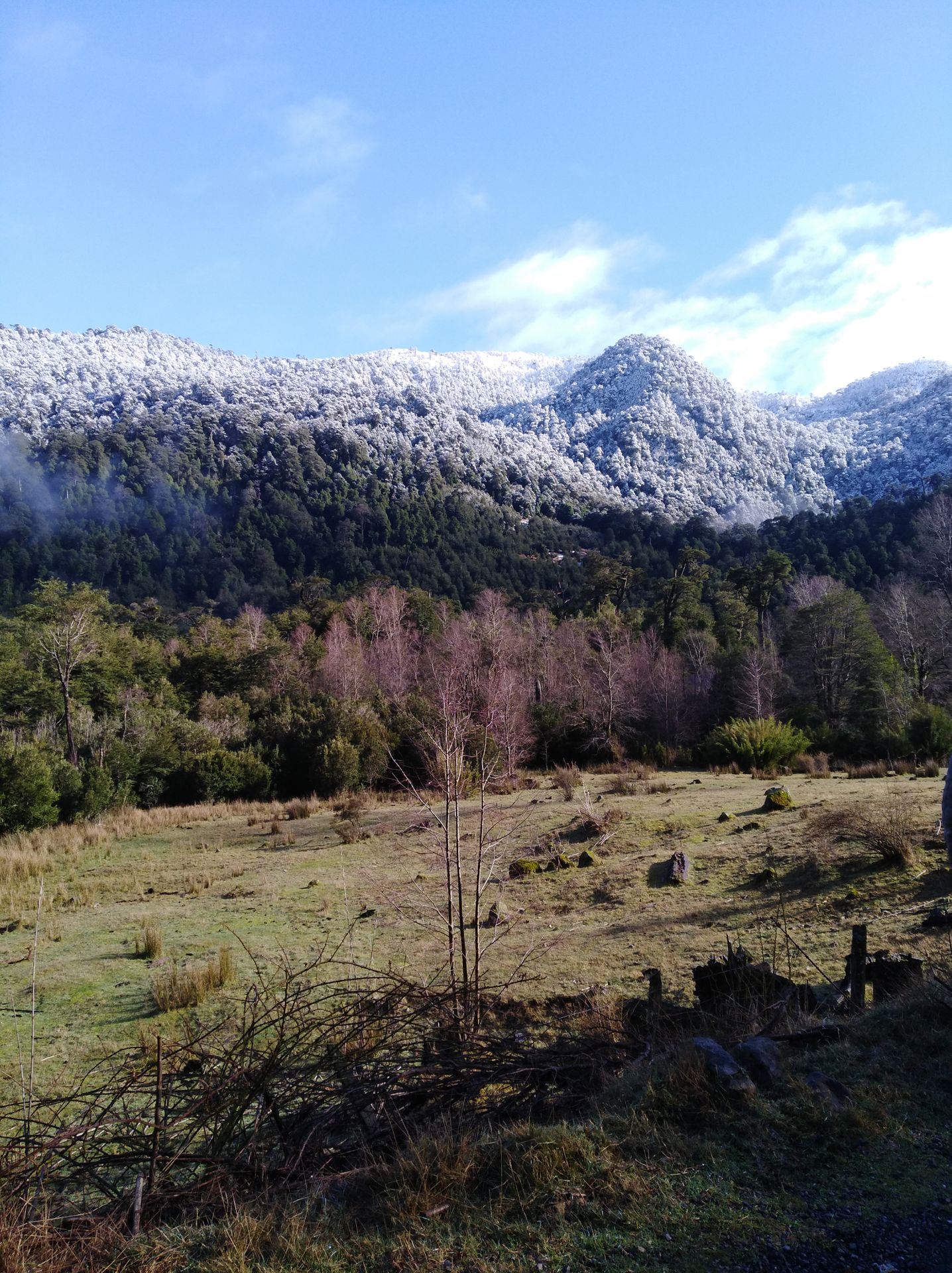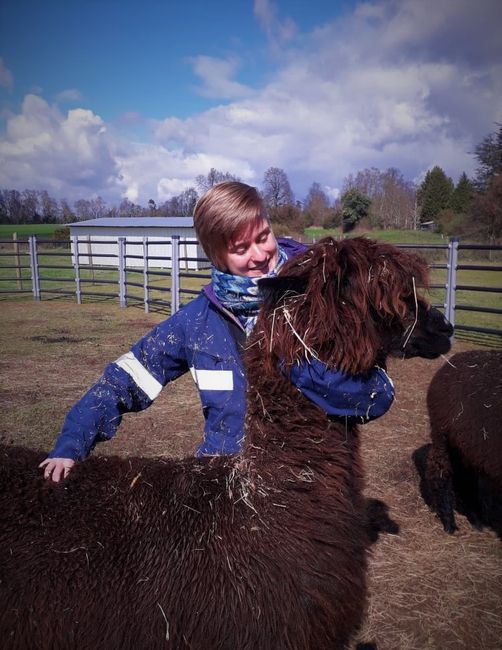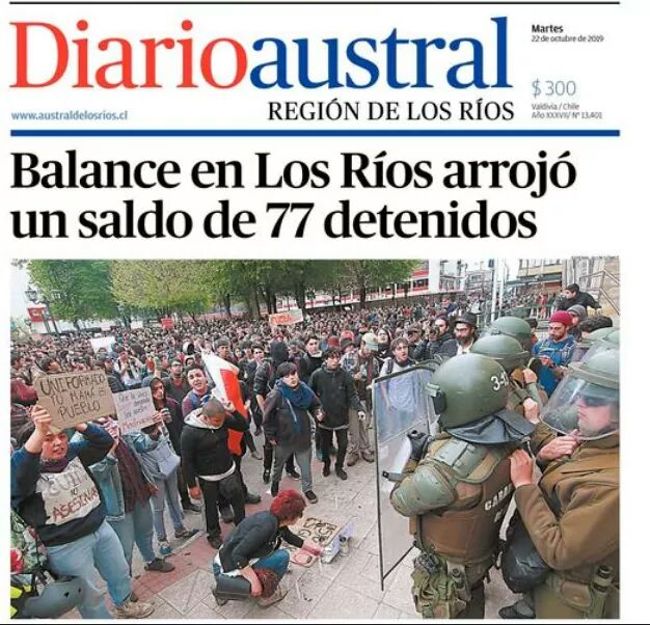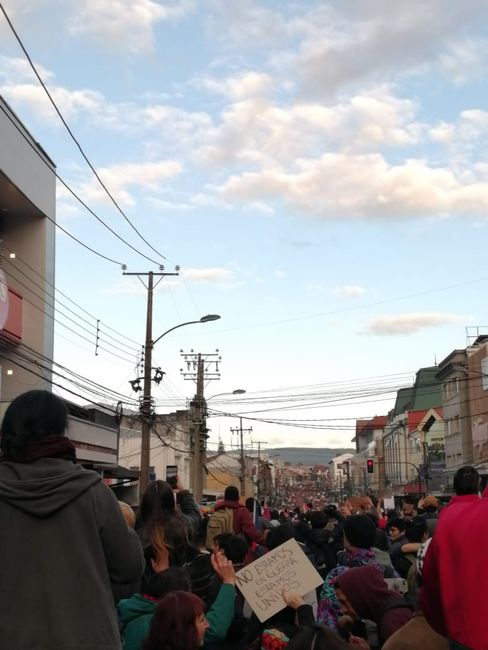Unrest in Chile
Pubblicato: 23.10.2019
Iscriviti alla Newsletter
Since last weekend, many Chileans have been demonstrating on the streets of Santiago, Valparaiso, Antofagasta, and many other cities...yes, even here in Valdivia. And why? The metro fare has increased by four cents. But that's just the drop that made the bucket overflow. Chile is one of the most stable countries in South America with the highest per capita income. That's true, but the gap between the rich and the poor is simply too big. I notice that here in many small things. It's completely normal that when people meet in a restaurant, some Chileans don't order anything. They can still stay. Most students go to their parents' home over the weekend because they can live there "cheaper". At the beginning of the month, it takes 4 hours at the bank to withdraw money. If you order something on the internet, even if it's only for 10 euros, you can pay in monthly installments.
The paradox is, you don't notice it in the people. Time for a nice conversation, a coffee is always there. Everything with a smile on their lips. They always try to help, to be there for you, and even invite you for a meal.
On the other hand, Chile has the second highest suicide rate among young people. The entire education, employment, and healthcare system puts immense pressure on the population. For example, education is not free here, but there are scholarships from the government. But only if you meet all the legal requirements. A failed exam, which leads to having to study for an extra year, means in fact: paying off a 20-year loan to the state. But the family needs the money, because on average, you receive a pension of 200 euros. However, the cost of living in Chile is even higher than in Germany! Roughly estimated, I would say that I pay 20% more at the supermarket here. I find it very difficult to grasp the proportions here, and even before the protests, I was shocked by the overall situation.
Now, 30 years of silent dissatisfaction with politicians who do not see these problems have boiled over. The president saw no other solution but to deploy the military, which led to further unrest. The older population is afraid, they experienced the military dictatorship in Chile before 1990.
It's a strange feeling to witness everything here on site. The protests in Valdivia started on Saturday evening. I hardly noticed it because I was in a national park all day, which is located a bit outside. When I took the bus back, I only saw crowds of people in the marketplace. At home, my WhatsApp exploded with pictures of barricades, military vehicles, and fires on the streets. The McDonald's was burned down and some bank buildings were destroyed. But that evening I was too tired to really comprehend it all. The next day, I was invited to a Chilean family, they informed me about the whole situation. The large supermarkets were closed, so were the banks. Everyone rushed to a local market and tried to buy as much as possible before chaos broke out. Endless queues at the gas stations. The behavior of the people frightened me. It was as if they were preparing for a "doomsday". In the course of the afternoon, we received the message about the curfew in Valdivia. My friend's mother asked me to take my friend in so that he wouldn't be alone in the apartment. More demonstrations were scheduled for the next day, and the supermarkets remained closed. The university was also closed on Monday and Tuesday, and there were further curfews.
This description of the situation is accurate, but the protests in Valdivia were peaceful and without further incidents. I feel very safe during the day on the streets, so safe that I explore a few things in and around the city because I don't always have so much free time. I think there will be peaceful protests here throughout the week. I hope the situation in Chile as a whole calms down in the coming time, but I also hope that the Chileans achieve something in this protest!
Frieda, I'm fine, don't worry :), 23.10.2019
Iscriviti alla Newsletter
Risposta (1)
Nanette
Hallo Frieda unsere Tochter Julia, 15 Jahre, ist auch in Valdivia und wohnt gleich neben der Robbenstation. Sie verbringt ein Austauschjahr bei einer Gastfamilie. Ich habe ihr deinen Blog empfohlen und vielleicht kann sie dich besuchen. Die Schule war gesperrt und ist jetzt ein Ort des Protestes, sie stirbt vor Langeweile und die Brücke zur Stadt ist oft gesperrt.
Wir hoffen der Alltag kehrt bald zurück und ihr seid sicher!
LG Nanette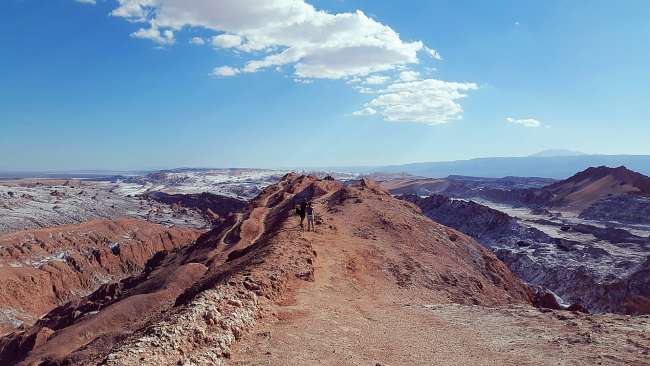
Rapporti di viaggio Chile
